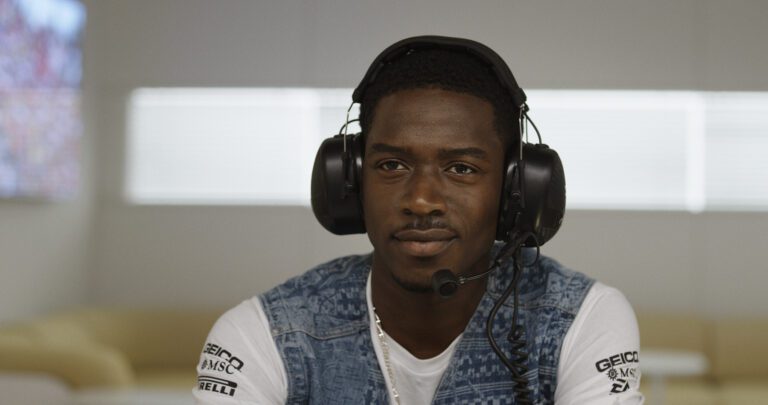There are a lot of great stories of persistence in the entertainment industry. Especially among actors. To say there is any one poster child for carrying on and striving until you find real and lasting success is sort of silly. That said, an actor like Duff MacDonald could be that shining example, if we were to pick one. Throughout a career that has lasted nearly four decades, the Canadian actor has appeared in dozens of TV shows and movies, mostly in day-player roles.
Over the last few years, though, he has found a rousing and overdue success as a voice actor. First with Let’s Go Luna!, then Xavier Riddle and the Secret Museum, and now with the new animated series Carl the Collector, currently available on PBS. He spoke to us from his home in Toronto.
Insights: Lessons from Duff MacDonald
- Hone a variety of character voices and take vocal risks to stand out in voice acting.
- Use each audition to improve your craft and discover your authentic voice, which is increasingly valued in the industry.
- Uphold a responsible and positive online presence, especially when your work influences children.
How did you get started as an actor?
Oh, my God. That’s a big, big, big, sprawling question. When I was about seven, I started singing. That’s my first love.
Very early on, I was doing theater in school, and then I moved to Vancouver and started doing theater out there. I got hired to work at the World’s Fair as an actor and as a host of the pavilion representing Saskatchewan. At the same time, the TV producer Stephen J. Cannell was building studios there, and I started getting into film and television. And animation.
That’s actually how it all started, in Vancouver. Hollywood North was happening, and it was just a good time for me. It was the mid-80s, and I was 19, 20.
You kind of blew past the getting into animation part. Was it easier in the 80s to get into voice acting and working in animation than it is now?
I think it’s harder now. The younger generation has an easier time accessing the tools they need to make it happen, like with self-taping. You could go on YouTube and look at or hear someone’s demo reel and learn so much from that and online courses. We didn’t have that then.
We would take a course with a casting person or someone who taught voiceover, but we had a smaller community and fewer actors doing it. I started doing ADR for a television series and then I started dubbing voices on an anime called Dragon Warrior, and I did 13 episodes of that. So that was my first foray into it, but I only started booking animation this year.
What do you attribute this new success to?
Over the pandemic, I started going out for a lot of things, as we all did. So I learned a lot, which is natural coming from literally hundreds of auditions. That’s when I started to perfect my go-to voices, which is the thing in animation. Having a grab bag of a few different voices that you can access.
Can you tell me more about that? What goes into perfecting voices?
Well, being a singer, that was my first easy entry into it, because singers have so much control over our voice and our range. A lot of the time that’s what’s required, is diaphragm support. I took a course with a woman in Toronto, Kim Hurdon, and her thing was that you need to have certain voices that are your go-to, while also taking big chances. Don’t be safe with anything. The more range you give something, the more entertaining it is.
So you have a stable of voices in your head?
Yeah, I do. It only comes with experience and, over time, doing all of those auditions. I have a low voice, too. One of the first theater jobs I had was Audrey 2 in Little Shop of Horrors. So I have that as a very solid base when I first started.
I have a big range to my voice, which comes from singing, but the grab bag comes from the experience of different jobs I’ve had, and then putting that in my bank that’s easy to access.
I will say that, recently, my real voice is what has gotten me the work. A heightened version of me. That’s what’s on Carl the Collector. A lot of animation, when it’s younger kids, say three and up, they want you to be a little bit more animated, but I found on Carl the Collector, they just want you to be very real, with a real emotional commitment to it.
How does your training affect your work when you’re using something that’s 90% your natural voice?
I guess it comes down to, first of all, being very familiar with how a studio works and what’s required when you go into the studio. Half the time, I don’t remember what the voice is that I auditioned with.
Every episode I do of Carl the Collector, I get them to play the voice, because the placement is very important. The minute I hear the placement, that’s all I need. So, I guess that just comes with learning the placement in my voice, which comes from singing.
Learning a tone, or how to come in on a harmony, is almost the same thing. I know exactly how it feels, and so I know where to go with it. It’s an organic thing that only someone who has been doing this for so many years can do.
Now that you work so much in children’s animation, do you feel a sense of responsibility knowing you’re very specifically entertaining children?
Yeah. Your online personality is important too. I feel a very real sense of responsibility to that platform and kids, to put myself out there in a positive way, and to promote new series like Carl the Collector, which promotes autistic children and neurodiversity and family and friendships and I think it’s so important in this disconnected world that we’re in right now.
It’s such a great thing when you get to be a part of a project like Carl or Let’s Go Luna! or Xavier Riddle and the Secret Museum, those are learning tools for children, and I feel like I’m making a difference. I come from a family of teachers, so yeah, it’s in my nature to influence children positively.
You’ve been doing this for a long time, but just recently found traction. If you were to talk to another actor looking to get into voice acting, what advice would you give them?
Take risks and don’t give up. We just have to keep persisting. You can get overwhelmed, especially on social media, by other people’s successes. I find inspiration from that. I turn it around, I find inspiration in people’s successes, and I think that’s also a key. I want people to shout out their gifts. I want people to celebrate their successes. But some people are not cut out to handle that part of it.
It can be overwhelming when you see people booking things constantly, but you can’t compare yourself to other actors. Your career is completely different from everyone else’s, and everyone has their time.
Ready to find your next role with Casting Networks? Sign up for a free trial today!
You may also like:













